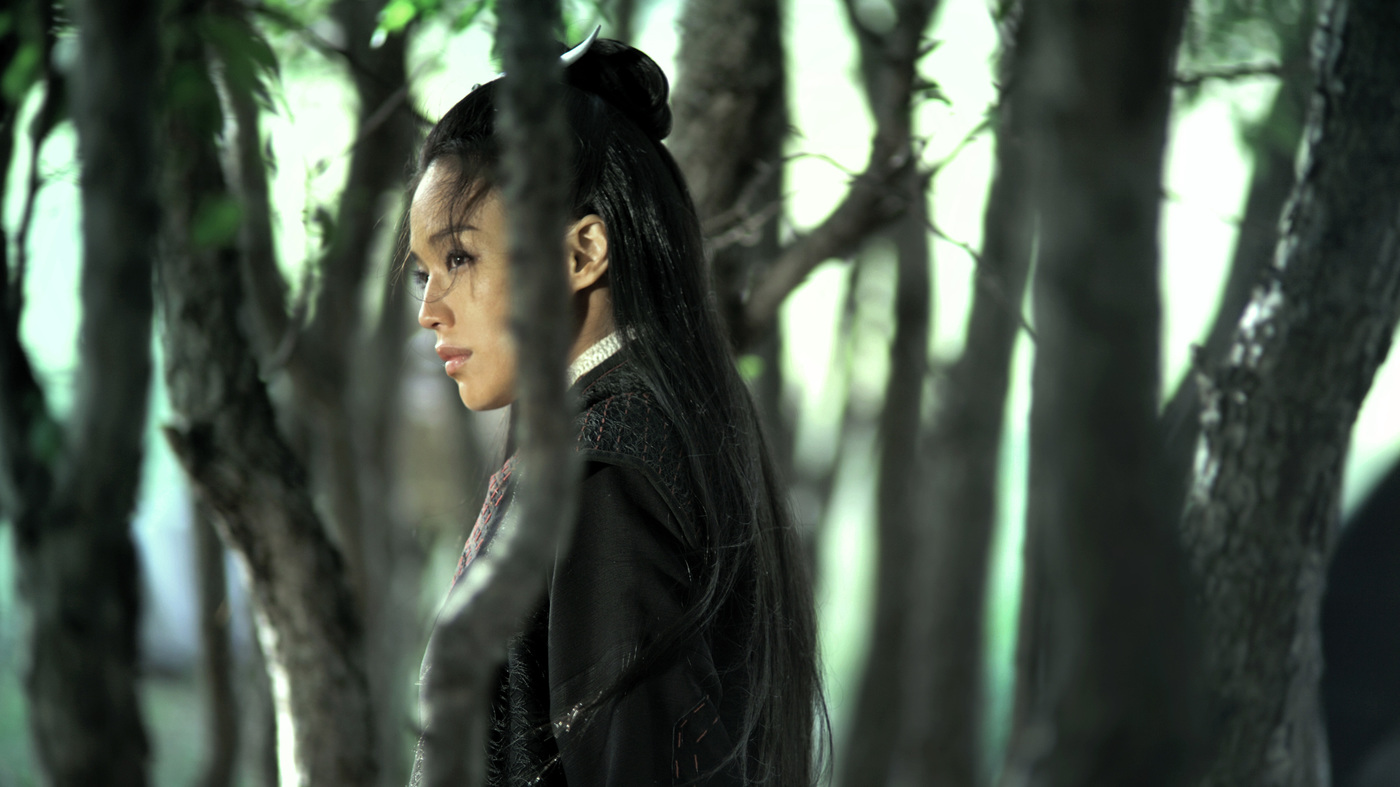
MPAA Rating: NR | Rating: ★★★★½
Release year: 2015
Genre: Action, Drama, Foreign Director: Hou
The Assassin is deliberately, beautifully obscure. Every image, every character, every movement in the the narrative is in an intentional haze. The Assassin revels in mystery, forcing the viewer to truly contemplate what they’re seeing on screen, creating a tension between the on-screen visual grace and the cerebral work of the audience to understand what is happening before them. You’ve really gotta pay attention to appreciate this film. The overt enigmatic tone made me think of the parables of Christ–they are simple, elegant tales which are only understood by those with eyes to see and ears to hear. It takes some intellectual and spiritual work to unearth the meaning, a potentially lifelong process. Yet once treasure is found–and it can be found in repeated visits to the images and story–it’s satisfying and inspiring.
The Assassin follows Nie Yinniang (Qi Shu), a beautiful young woman who serves her master as a skilled assassin. After refusing to kill a target due to the presence of the man’s young son, her disappointed master sends her on a mission to kill her cousin, a political leader in a nearby province. The story is quite difficult to follow, and characters’ relationships and motivations take some deducing in order to understand the connections. Yet in the center of all the intertwining characters is the assassin, silent and beautiful, carefully observing the world around her with a delicate transcendence.
The Assassin directly addresses ethical issues of pacifism and violence, particularly around the main heroine’s vocation and familial ties. While a second viewing could offer clarification, I believe it lands strongly on the side of pacifism. Yet it shows that taking the path of peace and non-violence is not a cop-out or wallowing in weakness, but a deliberate choice requiring immense strength, resilience, and sacrificial action. (I’m a pastor with Anabaptist/peace-making leanings, so a film that wrestles with pacifism like this without becoming a didactic “message film” is so refreshing.) There are also themes of guilt and forgiveness, regret and redemption, love and hope. The Assassin is very open to the spiritual elements of our world–sure, a decidedly more Eastern version, with some sort of dark magic afoot–and I find a film that openly embraces a worldview containing spirituality and mystery is decidedly more “Christian” than one which doesn’t (e.g. The Martian). It’s interesting to me that the assassin’s master is also a nun, making me wonder what sort of spirituality the assassin relies upon for strength. While we are rarely privy to character’s internal motivations–the assassin rarely speaks or shows deep emotions–the intimate moments when people voice their regrets or feelings are affecting.
Regarding aesthetics, The Assassin is one of the most visually captivating films I’ve ever seen, without exaggeration. Hou’s use of color, the framing, the aspect-ratio, all of it; each frame is so deliberate and precise without ever feeling rigid. A few scenes literally took my breath away, and I uttered a spontaneous “whoa…” at the beauty before me. Hou’s choice for framing shots is so interesting, and the camerawork and editing are very unique, with some jarring cuts at times, followed by slow fades and long takes. The camera often takes the POV of the assassin, hovering in the corners of rooms as a witness floating upon the wind. Really, the wind itself is a character in this film. There is a constant breeze in every scene, filling the film with a sense of invisible energy and movement.
There is a scene near the finale where the assassin confronts her master with her decision about an assignment, set upon a mountaintop as fog rises from the valley below. By the end of the scene, the fog has totally obscured the entire mountain backdrop, surrounding the two characters in mist and mystery, a perfect image to summarize this haunting, elegant film.
IMDB Listing: http://www.imdb.com/title/tt3508840/